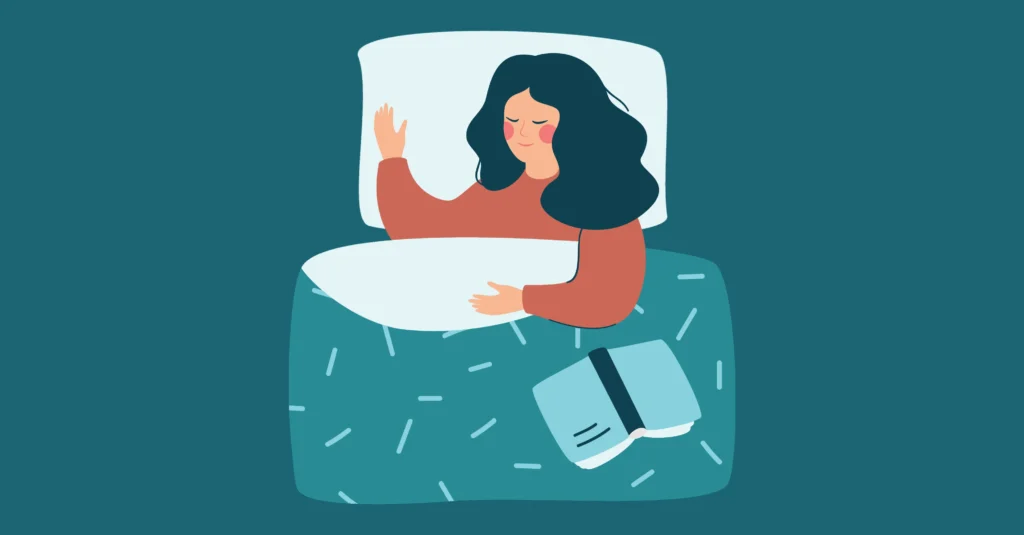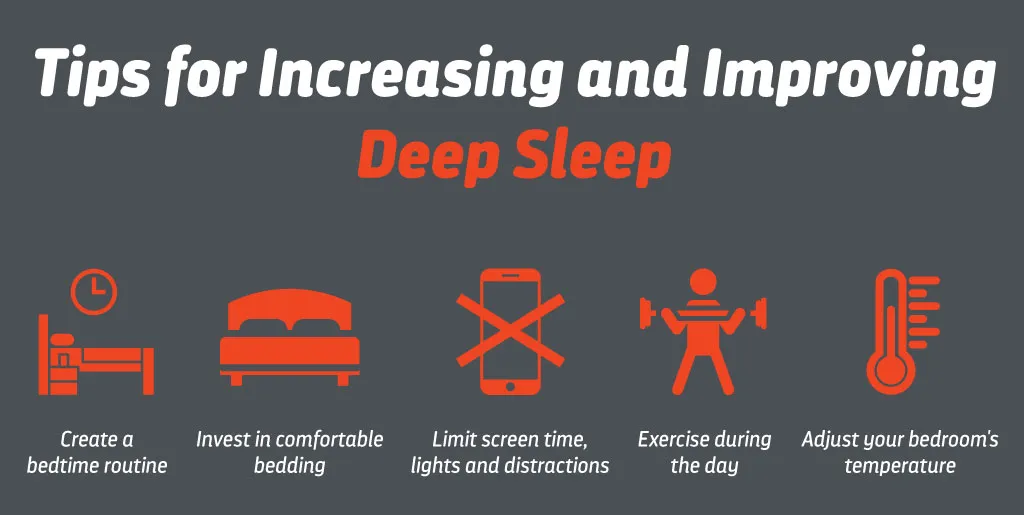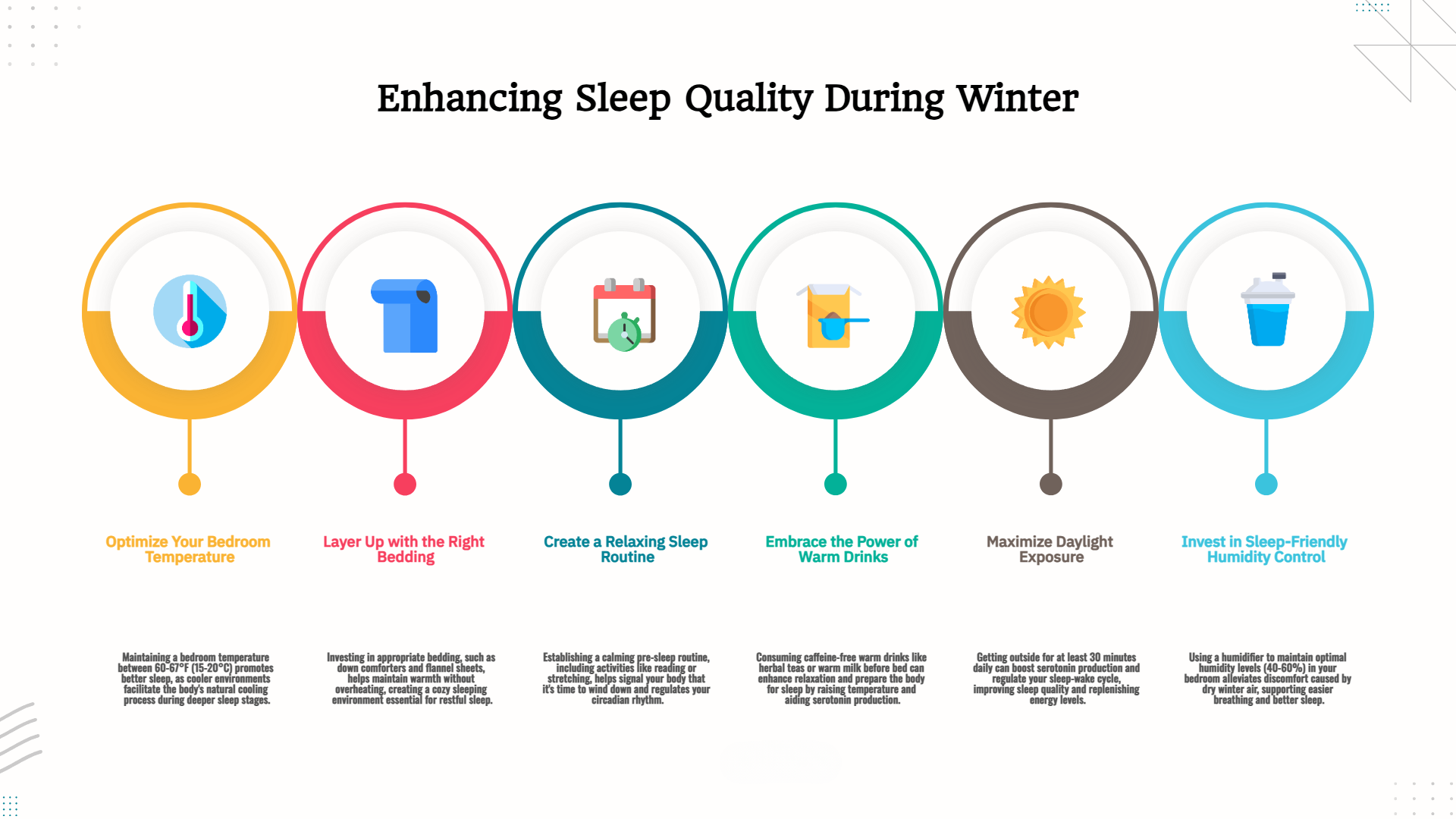
Introduction: Why REM Sleep is Essential
Tired of waking up groggy and unfocused? Your REM (Rapid Eye Movement) sleep might be lacking. REM sleep is critical for brain health, emotional stability, and energy restoration. When you miss out, you may notice:
- Difficulty concentrating during the day.
- Mood swings or irritability.
- Increased fatigue despite sleeping enough hours.
The good news? You can naturally improve your REM sleep with targeted lifestyle changes, sleep-friendly foods, and the right habits. In this guide, we’ll share 8 practical and proven tips to help you get better REM sleep so you can wake up refreshed every morning.
Understanding REM Sleep: The Science Behind Deep Rest

Credit: www.somnologymd.com
What is REM Sleep?
REM is the stage of sleep where dreaming happens and your brain becomes highly active. This stage occurs in cycles, increasing in duration as the night progresses. A healthy adult spends about 20-25% of their total sleep in REM.
Why Is REM Sleep Important?
- Memory Consolidation: REM helps solidify learning and memories.
- Emotional Balance: Regulates mood and reduces stress.
- Brain Repair: Supports detoxification and neuronal growth.
Did You Know?
A full sleep cycle lasts about 90 minutes, with REM sleep peaking during the second half of the night. Prioritizing longer sleep ensures optimal REM.
8 Proven Natural Tips to Improve REM Sleep

Credit: laylasleep.com
1. Stick to a Consistent Sleep Schedule
Our bodies thrive on routine. Going to bed and waking up at the same time every day trains your circadian rhythm, improving REM cycles.
How to Stay Consistent:
- Use an alarm to remind you when it’s time to wind down for bed.
- Avoid sleeping in on weekends to maintain rhythm.
2. Create a Sleep-Inducing Environment
Your bedroom environment plays a massive role in sleep quality. Focus on making your room a sanctuary for rest.
Quick Fixes for Better Sleep:
- Keep it Cool: Maintain a temperature of 65°F (18°C).
- Block Out Light: Use Blackout Curtains for total darkness.
- Limit Noise: Try a white noise machine or Comfortable Earplugs to minimize disruptions.
- Upgrade Your Bed: Invest in a high-quality Memory Foam Mattress and pillows to maximize comfort.
3. Avoid Alcohol and Caffeine Close to Bedtime
- Caffeine: Its effects last up to 6 hours. Avoid coffee, energy drinks, or even chocolate late in the day.
- Alcohol: While it can make you drowsy initially, alcohol disrupts REM sleep later in the night.
Better Alternatives:
- Sip on Chamomile Tea to promote relaxation.
- Try valerian root for a natural sleep boost.
4. Include REM-Boosting Foods in Your Diet
Certain nutrients actively support healthy REM sleep, such as magnesium, tryptophan, and melatonin.
Top Foods for REM Sleep:
| Nutrient | Examples | Benefits |
|---|---|---|
| Magnesium | Almonds, spinach, pumpkin seeds | Relaxes muscles and nervous system. |
| Tryptophan | Turkey, chicken, eggs | Boosts serotonin, promoting REM. |
| Melatonin | Cherries, kiwi, walnuts | Regulates sleep-wake cycles. |
| Omega-3 Fatty Acids | Salmon, walnuts, chia seeds | Supports brain and sleep health. |
Pro Tip: Snack on a banana or handful of almonds 30 minutes before bed to encourage better REM.
5. Prioritize Stress Reduction Techniques
High stress leads to restless sleep and interferes with REM. Make stress management a priority in your daily routine.
Effective Stress-Reduction Methods:
- Guided Meditation: Apps like Calm or Headspace provide guided relaxation.
- Progressive Muscle Relaxation: Gradually release tension from head to toe.
- Gratitude Journaling: End your day by writing three positive moments.
Expert Quote: “Sleep is the best meditation for the mind.” – Dalai Lama
6. Exercise Regularly (But at the Right Time)
Exercise is a natural sleep enhancer, but timing matters. Avoid late-night workouts, which can delay your sleep onset.
When to Exercise for Better REM Sleep:
- Morning: Energizes your day and promotes evening tiredness.
- Early Evening: Ideal for stress relief and winding down.
You may also read: Yoga Poses to Help You Sleep and Improve REM Stages
7. Establish a Relaxing Evening Routine
Create a bedtime ritual that signals your body it’s time to rest.
Sample Evening Routine:
- Take a warm bath 1 hour before bed.
- Read a book (paper format, not a screen).
- Use lavender essential oils to promote calm.
8. Get Morning Sunlight Exposure
Natural light exposure during the day regulates melatonin production, improving REM sleep at night.
How to Incorporate Sunlight:
- Spend 15-30 minutes outdoors in the morning.
- Combine sunlight exposure with light activity, like a walk.
- If sunlight is limited, use a Sunlight Therapy Lamp to mimic natural light.
Lifestyle Changes to Optimize Sleep Quality

Credit: www.lifeextension.com
- Limit screen time to 1 hour before bed. Use Blue Light Blocking Glasses to minimize exposure.
- Avoid large meals or heavy snacks late at night.
- Keep your bedroom for sleep only—not work or entertainment.
Common Barriers to Healthy REM Sleep

Credit: www.sleepscore.com
- Inconsistent Sleep Schedule: Skipping bedtime routines confuses your body’s sleep clock.
- Medications: Some antidepressants or antihistamines suppress REM sleep.
- Chronic Stress: Overthinking disrupts your brain’s ability to relax.
- Lifestyle Choices: Alcohol, nicotine, and caffeine significantly disrupt REM cycles.
Expert Answers to Your REM Sleep Questions

Credit: drsyedarshadhusainpulmonologist.com
Q: How much REM sleep do I need?
A: Adults need about 90-120 minutes of REM sleep nightly for optimal health.
Q: Can naps improve REM sleep?
A: Short naps (20-30 minutes) mainly boost light sleep. Longer naps may include REM but disrupt nighttime sleep.
Conclusion: Start Your REM-Optimized Journey Tonight
Improving REM sleep naturally requires consistency, mindful habits, and the right environment. By following these 8 tips—from eating REM-supporting foods to creating a relaxing bedtime routine—you can enhance your brain function, mood, and energy.















